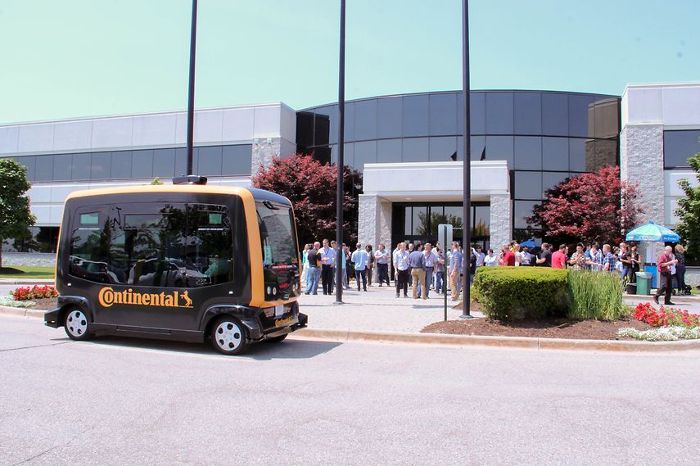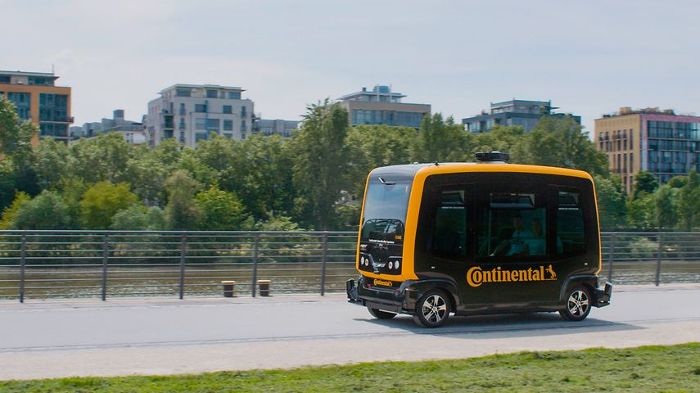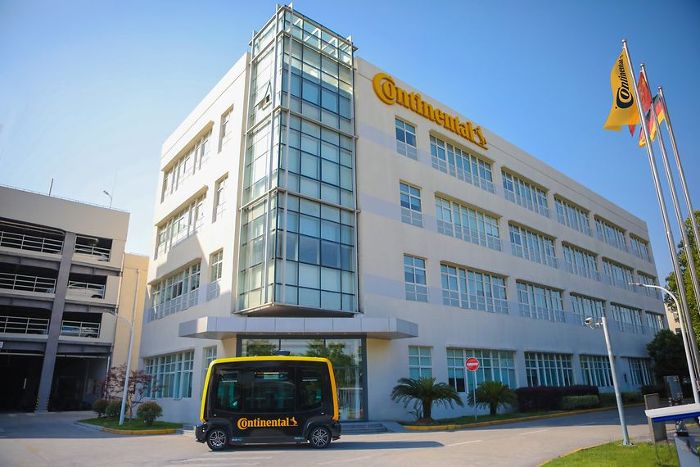German automotive technology supplier Continental has launched a range of new ‘production-ready’ systems that are ready for customers developing driverless mobility systems such as autonomous shuttle buses or ‘robo-taxis’.
Continental’s researchers and developers in Europe, North America and Asia have been working to make proven series production technologies suitable for use in driverless vehicles. Already this year, the company’s technology has been in production for the first time in French company EasyMile’s EZ10 autonomous shuttle, which Continental has held a stake in since 2017. The central development platform for Continental’s R&D work is the CUbE, a small driverless shuttle based on the EZ10 platform. With the aid of the CUbE, the company has developed a production-ready radar system especially for driverless vehicles, which can generate a 360-degree image of its environment by combining the data from different sensor technologies.

Continental’s radar sensor, which will be used in the EasyMile EZ10 autonomous shuttle from later this year, detects the vehicle’s environment within a radius of up to 656 feet (200m). The vehicle is equipped with a total of seven radar sensors, as well as lidar and cameras, which provides precise positioning and early detection of obstacles and potentially critical situations. Continental’s production-ready portfolio also includes the MK C1 HAD one-box brake system that combines ABS, ESC, and a Hydraulic Brake Extension that can electromechanically generate maximum brake pressure after only 150 milliseconds. This means that automated vehicles without driver intervention can be brought to a standstill more rapidly than would be possible with conventional brake systems.

In late August, Continental, EasyMile, Oakland University, and the City of Auburn Hills in Michigan are set to implement the pilot deployment of an autonomous shuttle due to a grant from the state’s PlanetM mobility initiative. Lasting up to six months, the pilot will deploy a vehicle on the campus of Oakland University. During the pilot, Continental will integrate technology from the recently-acquired Zonar company, which enables vehicle inspections via the RFID-based electronic verified inspection reporting (EVIR) system that captures, transmits, and records inspection, compliance, and maintenance data to the operator. The project will also use Zonar’s Z Pass technology that detects where and when the passengers enter and exit the vehicle. The aim of the pilot is to gather experience in the operation of driverless vehicles and to collect valuable, empirical data that will be integrated in their further development.
“The technological building blocks that enable robo-taxis to operate are available in principle and have been tried and tested in practice. However, we now have to intelligently, safely, and efficiently put them together to form an overall picture,” said Andree Hohm, Continental’s director of driverless mobility. “Customers developing driverless mobility systems should be able to draw from a wide array of high-performance products and solutions from us. We are setting the course for that. At the same time, our global activities are addressing local particularities. Driverless vehicles are a revolution, and this revolution will and must take place in evolutionary steps.”





